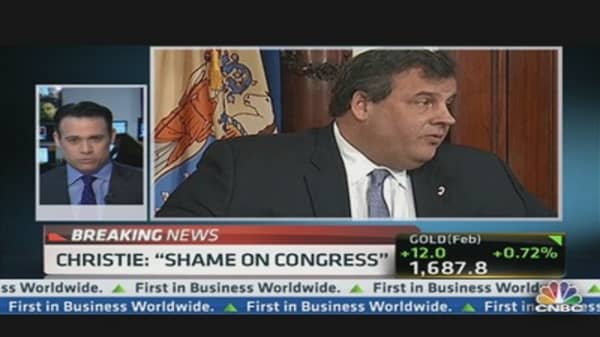Northeastern lawmakers hoping to push a $50.7 billion Superstorm Sandy aid package through the House face roadblocks by fiscal conservatives seeking offsetting spending cuts to pay for recovery efforts as well as funding cuts for projects they say are unrelated to the Oct. 29 storm.
The amendments by budget hawks set up a faceoff Tuesday, with Northeast lawmakers in both parties eager to provide recovery aid for one of the worst storms ever to strike the region as the House moves toward expected votes on the emergency spending package. (Read More: Hurricane Sandy Bill Amendments Offer Insight on Congress .)
The base $17 billion bill by the House Appropriations Committee is aimed at immediate Sandy recovery needs, including $5.4 billion for New York and New Jersey transit systems and $5.4 billion for the Federal Emergency Management Agency's disaster relief aid fund.







